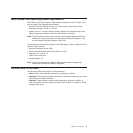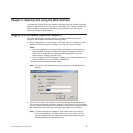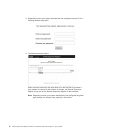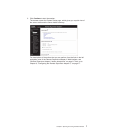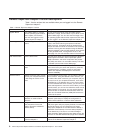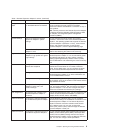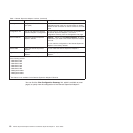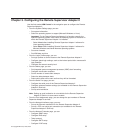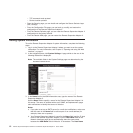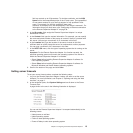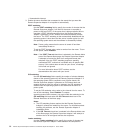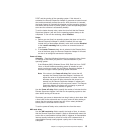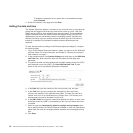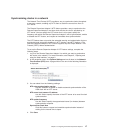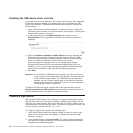
Chapter 3. Configuring the Remote Supervisor Adapter II
Use the links under ASM Control in the navigation pane to configure the Remote
Supervisor Adapter II.
v From the System Settings page, you can:
– Set system information
– Select the operating system to support (Microsoft Windows or Linux)
Important: For the Remote Supervisor Adapter II to function correctly, the
specified operating system must match the operating system of the server in
which the Remote Supervisor Adapter II is installed.
- Select Linux before installing Remote Supervisor Adapter II software for
Linux operating systems.
- Select Other before installing Remote Supervisor Adapter II software for
Microsoft Windows and Novell Netware operating systems.
–
Set server timeouts
– Set ASM date and time
v From the Login Profiles page, you can:
– Set login profiles to control access to the Remote Supervisor Adapter II
– Configure global login settings, such as the lockout period after unsuccessful
login attempts
– Configure the account security level
v
From the Alerts page, you can:
– Set integrated system management processor (ISMP) alert forwarding
– Configure remote alert recipients
– Set the number of remote alert attempts
– Select the delay between alerts
– Select which alerts will be sent and how they will be forwarded
v
From the Serial Port page, you can:
– Configure the serial ports of the Remote Supervisor Adapter II
– Configure advanced modem settings (not available for the Remote Supervisor
Adapter II SlimLine)
– Set up serial redirection
Note:
Setting up serial redirection is not available for the Remote Supervisor
Adapter II SlimLine in some server models.
v From the Port Assignments page, you can change the port numbers of Remote
Supervisor Adapter II services.
v From the Network Interfaces page, you can:
– Set up the Ethernet connection for the Remote Supervisor Adapter II
– Set up a PPP over serial port connection (not available for the Remote
Supervisor Adapter II SlimLine)
v
From the Network Protocols page, you can:
– Configure SNMP setup
– Configure DNS setup
– Telnet protocol
– Configure SMTP setup
– Configure LDAP setup
© Copyright IBM Corp. 2003, 2007 11



